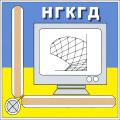Продовження карантину
Наказом № 374 ректора університету продовжено карантин до 22 червня 2020 року. Працюємо дистанційно, деякі категорії працівників для вирішення невідкладних питань можуть з’являтися на робочому місці на вимогу керівництва. Деталі в наказі ректора.
